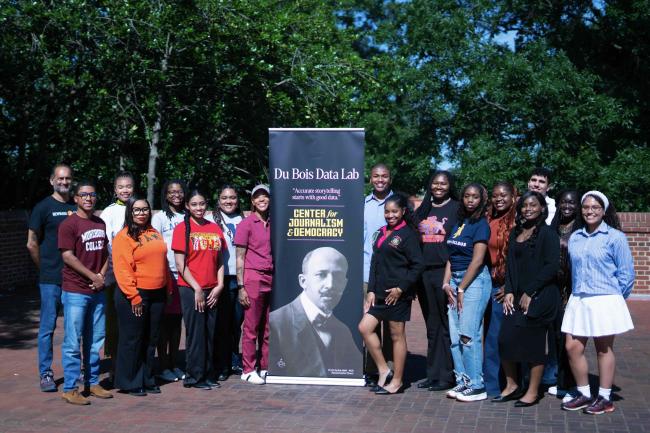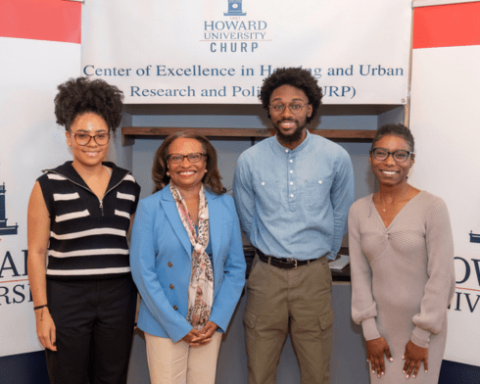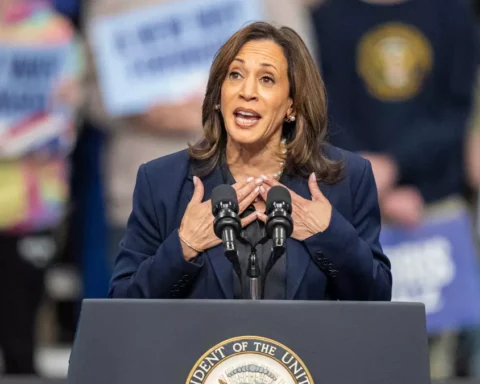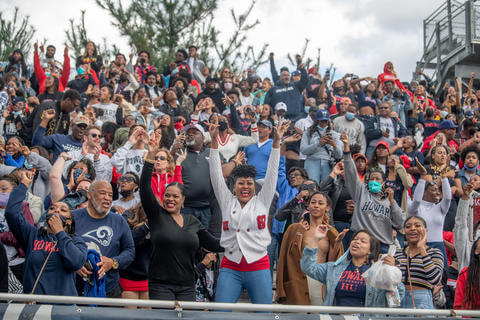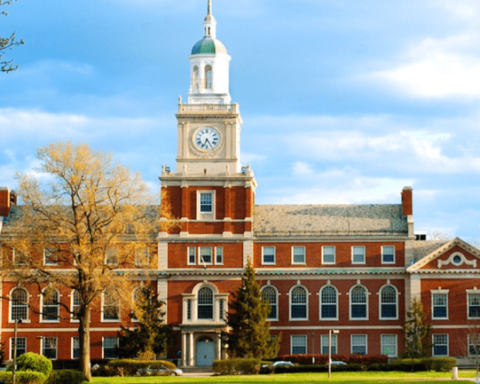By Sholnn Z. Freeman
The Center for Journalism & Democracy (CJD) at Howard University recently hosted its inaugural Du Bois Data Lab, an innovative program designed to immerse students in the essential skills needed for careers in investigative journalism.
The Du Bois Data Lab is a collaboration between the Center and the Craig Newmark Graduate School of Journalism at the City University of New York (CUNY). The program, held between May 29 and June 5, introduced journalism students at historically Black colleges and universities (HBCUs) to data, design, and coding tools meant to enhance the impact of their stories.
CJD is also preparing for its next major program of the summer, the Data Institute, a two-week training workshop for working journalists. The Data Institute will be held from July 8-19 on Howard’s campus. The program is a collaboration between the Center and the Ida B. Wells Society for Investigative Reporting. Both the Du Bois Data Lab and the Data Institute are part of the Center’s ongoing mission to develop investigative journalists and diversify the field.
Kali-Ahset Amen, executive director of the Center for Journalism & Democracy, conceived the idea for the Du Bois Data Lab last year with Newmark’s director of data journalism Sandeep Junnarkar. He said data has become increasingly ingrained in everyday life.
“We are constantly contributing to data captured by corporations and government entities,” Junnarkar said. “As journalists, this data can inform our audiences about trends, structural inequities, racial disparities — it can lead to so many stories.”
The lab is named after W.E.B. Du Bois, drawing inspiration both from his work and the pioneering journalism of Ida B. Wells-Barnett. Over a century ago, long before it was termed “data journalism,” both utilized data to expose social injustices. In 1900, Du Bois used charts and figures to share stories about Black Americans at the World’s Fair in Paris.
Nikole Hannah-Jones, founder of the Center for Journalism & Democracy and Knight Chair in Race and Journalism at Howard University, expressed her strong commitment to equipping Black students for careers in investigative journalism.
“In order to illustrate the ways people and communities are harmed, you must have more than anecdotes, and data can provide the evidence,” Hannah-Jones said. “I was intent on providing these skills to HBCU students, as this is an area of journalism that is among the least diverse. We need more students capable of uncovering and reporting significant stories about their communities that emerge from data.”
Fifteen students from HBCUs participated in the program, which covered travel costs, accommodations, and meals. Trainers included Newmark professors and other leaders in the field of data journalism. The instructors demonstrated the mechanics of data discovery while highlighting their specialized areas of coverage, including topics such as delivering services to marginalized and underreported communities, ethical artificial intelligence, and other social justice issues.
The Du Bois Data Lab was made possible through the generous support of the Robert Wood Johnson Foundation as part of the Investigative Journalism for Health Equity Project, grant funding the Center received last year.
About the Center for Journalism & Democracy
Founded in 2022 by Pulitzer prize-winning journalist Nikole Hannah-Jones, the Center for Journalism & Democracy seeks to reshape the American media in ways that foster racial justice, hold power accountable and strengthen U.S. democracy. The Center promotes historically-informed investigative reporting that exposes how power is wielded against the vulnerable. Through broad-based partnerships with universities, media organizations, thought leaders, and local communities, the Center provides opportunities for interdisciplinary training, immersive research and cross-institutional collaboration for students and faculty at HBCUs. The Center is committed to cultivating investigative journalists capable of transforming the national conversation about race, representative democracy and the redress of historical wrongs.

